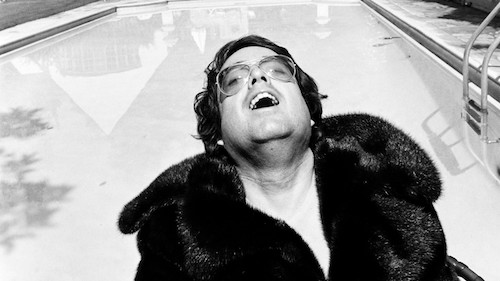Literary Event of the Week: The Seattle International Film Festival

Something very strange happens when you get a bunch of book people — booksellers and librarians, say — to sit down at a bar with a bunch of people who work with movies, like projectionists and film bookers. Usually, all the book people want to talk about is movies: what’s coming out, what this movie star was like when she visited town for a special screening, what working at a movie theater is like. But the movie people are excited to talk about books with a knowledgeable peer group for a change. In the end, they kind of tragically talk over and around each other in an unfortunate overlap of interests.
Book folks and movie folks do have a lot in common, though: they both spend a lot of time indoors, staring at things. They both adore well-told stories. They are patient and abiding lovers of fandom. And for a few weeks at the end of every Seattle spring, the interests of book and film communities intermingle during the Seattle International Film Festival.
Every year, a good portion of SIFF’s 400 films boast a literary pedigree, ranging from adaptations to biopics about authors to documentaries about literary figures. I wrote about some of those movies in our SIFF preview, and we’ll be covering more in the coming weeks.
The first book-to-film adaptation to debut at SIFF this year is the documentary The Fabulous Allan Carr, which screens this Friday and Saturday at the Egyptian. Appropriately, it’s a movie about a nerd who becomes entranced by the glitz and glamor of Hollywood.
With his weirdly boyish face and his unashamed enthusiasm, Hollywood producer Allan Carr gives off a sense that he’s an oversized toddler. His interview segments in the film — all recorded decades ago — are kind of bonkers. At one point, Carr enthuses: "I love stars. Stars are my favorite thing in the world." We discover in the film that Carr was born Allan Solomon, and he chose the name “Carr” in part because it rhymes with “star.”
Carr’s enthusiasm soaked through all the projects he chose to produce. His greatest success was the John Travolta film Grease, but he also shepherded Ann-Margret’s career, and he was an early backer of the Village People. Everything he touched oozed of showbiz: eager to please, over-the-top, and thrumming with gay subtext.
Told in archival clips, brief animated segments, and sparkle-enhanced photographs that shimmer like animated gifs, The Fabulous Allan Carr is as eager to please and as flashy as its subject. But beneath the glitz, there’s a rock-solid structure and dense reporting — all carryovers from the book that inspired the move, Robert Hofler’s Carr biography Party Animals: A Hollywood Tale of Sex, Drugs, and Rock 'n' Roll Starring the Fabulous Allan Carr. Without the substance and heft of a biography to shape the film, it might have been all style and no substance.